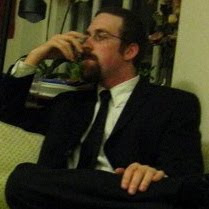“…The fear of death...yells I, I, I and wants to hear nothing of a deflection of the fear…For man does not at all want to escape from some chain; he wants to stay, he wants to live.”
~Franz Rosenzweig, The Star of Redemption, p. 9
Yeshua heard the cry of human suffering when Marta greeted him, saying : “Sir, if you had been here my brother would not have died” (Barnstone, Yohanan 11:21). In response, he speaks of his power, his purpose, and his identity:
“I am the resurrection [and the life]. Those who believe in me even if they die will live. And everyone who lives and believes in me will not die into eternity” (Barnstone, Yohanan 11: 25-26).
Marta expresses her belief in this. I can’t help but wonder if Yeshua was going to leave it at that. Marta and Yeshua’s encounter was a perfect example of undying faith, filled with hope and assurance, but there was still a man in a grave. So Miryam comes out and says the same words first uttered by Marta: “Sir, if you had been here my brother would not have died” (Barnstone, Yohanan 11:32). Marta and Miryam share these words. These are not words of eschatological hope, or proof of undying faithfulness to the God who will one day etc, etc, etc…These are words born of the pain of loss that says where God is, death cannot stand…My brother would not have died.
“When Yeshua saw her weeping and the Jews who had come with her were weeping, he raged at his own spirit…Yeshua wept. Then the Jews were saying, ‘See how he loved him.’ But some of them said, ‘Couldn’t he who opened the eyes of the blind man have done something so this man wouldn’t die?’ Yeshua again raged inwardly and went to the tomb” (Barnstone, Yohanan 11:33-38, emphasis mine).
Why did Yeshua rage inwardly, why did he weep? Was it some lack of faith? Marta and Miryam seemed to have plenty. Did he not know what was coming next? Maybe he didn’t. Maybe he knew he would only do this for one man before it would be himself. Maybe he raged and wept because death comes before resurrection, of necessity. Maybe he knew this would not be done for every man. How often have many of us said, in the wake of floods and earthquakes, in a world of murder and hate, in our mourning over the inevitable death of people we love: “If you had only been here…”
Are the words of Marta and Miryam figurative? Are they platitudes? How are we to hold them? How can we say them? Can Yeshua ever not be here?
We don’t know all the answers, but there is at least one: Death may be inevitable, but it need not be permanent. This is why Yeshua can show up late, rage, and weep and with a powerful voice cry out: “Elazar, come out” (Barnstone, Yohanan 11:43). Though death causes weeping and rage in God and us, it will not have say over the God of the living. This does not remove death’s sting, nor am I convinced it ought to. It does however mean that I can look forward to the day that I look in Yeshua’s eyes and say the words, “Because you are here my brothers and sisters will never die again.”

Hello Ben and All,
ReplyDeleteYou and I have discussed the passages in this message before and the discussion bears repeating. For some time I have mulled over Yeshua's response to the situation. Was it a response to the death of his friend? Was it a response to the reaction of Marta and Miryam? Was it a response to the foreshadowing of His death? With all of the elements to the situation it seems impossible to pinpoint to what element He was responding or perhaps to all.
I would like to add another possibility. He was about to put one of His best friends through another life, another separation from The Father, and another death just to prove a point to those that would continued to doubt Him.
May all of our lives be dedicated to complete belief on His power, His purpose, and His message of eternal life in Him.
"When Yeshua saw her weeping and the Jews who had come with her were weeping..." he responded with anger and weeping. Yeshua responds to the exposed emotions of his friend and her fellow mourners. The mourner's weeping is not a quiet weeping, but the raw exposure of the utter pain and emptiness of loss. Perhaps Yeshua's response was a mixture of pure empathy tied to an intense rage at the human devastation inflicted by the chaos he came to destroy.
ReplyDeleteI think both Carl and Wendy are on to something here...
ReplyDeleteWendy is pointing out that Elazar's resurrection would not be of the same nature as Yeshua's and would serve almost everyone else other than Elazar himself. This would be cause to grieve...
Carl is pointing out the deep humanity Yeshua is displaying here. I would suggest that we could all learn much from growing in an "empowered empathy." An empathy that can feel the hurt deeply, and demonstrate the power to defeat chaos all the same...